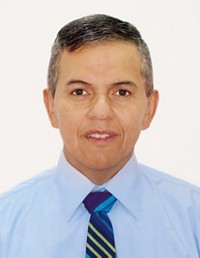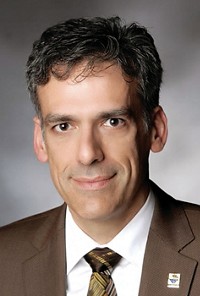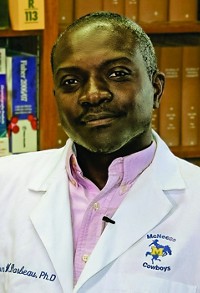Advertisement
Grab your lab coat. Let's get started
Welcome!
Welcome!
Create an account below to get 6 C&EN articles per month, receive newsletters and more - all free.
It seems this is your first time logging in online. Please enter the following information to continue.
As an ACS member you automatically get access to this site. All we need is few more details to create your reading experience.
Not you? Sign in with a different account.
Not you? Sign in with a different account.
ERROR 1
ERROR 1
ERROR 2
ERROR 2
ERROR 2
ERROR 2
ERROR 2
Password and Confirm password must match.
If you have an ACS member number, please enter it here so we can link this account to your membership. (optional)
ERROR 2
ACS values your privacy. By submitting your information, you are gaining access to C&EN and subscribing to our weekly newsletter. We use the information you provide to make your reading experience better, and we will never sell your data to third party members.
Careers
The Nons: Advocacy for those off the tenure track
by Laura Sremaniak, Chair, ACS Women Chemists Committee
April 17, 2017
| A version of this story appeared in
Volume 95, Issue 16

Advocacy for issues important to women in the chemical sciences has been central to the mission of the Women Chemists Committee (WCC) since its founding in 1927.
One of our current task forces is focused on working conditions for non-tenure-track faculty. Available data strongly suggest that women are hired into such roles in increasing numbers, outpacing the increase of women hired into tenure-track positions.
As employment in the academic landscape shifts toward a heavier reliance on non-tenure-track and part-time faculty, the chemistry community needs to consider ways to address the many issues this group faces and support their work in educating our students and advancing our discipline.
The discussion of academic employment, including tenured and tenure-track faculty, is an important and complex one. Tenure-track faculty lines are in peril, and universities have been intentionally formed without including tenure as a feature of faculty employment (C&EN, Sept. 19, 2016, page 28). Our task force is focused on the employment status and safeguards for non-tenure-track faculty working at institutions that employ both tenure-track and non-tenure-track faculty.
Sensible advocacy efforts aimed at improving conditions for non-tenure-track faculty are needed, along with efforts to protect tenured faculty lines. At many institutions, both types of faculty are needed to fulfill teaching and research missions.
WCC’s advocacy work began with a 2009 white paper on non-tenure-track faculty. Working with representatives from the Committee on Professional Training (CPT) and the Committee on Education, the task force outlined what statistics are known for this employment sector in academia, what issues exist for both the employees and employers, and ways in which ACS can advocate for better conditions in academia for those working off the tenure track.
The core difficulty in this advocacy work is the heterogeneity of titles (lecturers, instructors, adjuncts, research professors, teaching assistant professors, etc.), areas of work (teaching, research, and administration), institution types, and wide-ranging employment policies and practices among institutions.
Even the collective term “non-tenure track” is not universally used and in and of itself is not ideal: Who wants to be identified by what they are not (as a “non”)? Some institutions classify this group as staff rather than faculty, and less information is available on websites about these faculty than exists for their tenured colleagues. Data collection, therefore, is difficult at best, and without a more complete analysis, the scope of the issues remains ill defined.
It is here where ACS and CPT have taken positive steps. The periodic report forms now make a distinction between long-term full-time non-tenure-track and part-time non-tenure-track faculty, positioning us to learn more about the numbers, demographics, and salaries of those employed in these categories by ACS-approved programs.
According to the 2010 CPT report “Who Is Teaching Whom,” data from 422 chemistry departments shows that up to 30% of students in introductory chemistry lecture courses suitable for majors are taught by non-tenure-track faculty, and that percentage rises to 55% for public Ph.D.-granting institutions.
Apart from such significant percentages of non-tenure-track faculty in academia and chemistry classrooms, the issue of employment conditions matters, as does the impact on students. Although not universal across all institutions, non-tenure-track faculty—along with research and instructional staff—face a range of issues, including job security, inequitable compensation, lack of promotional opportunities, less respect in the workplace, lack of invited participation in governance, less academic freedom, and the need to piece together work at multiple institutions. Institutions also face pressures to meet changing enrollment demands while controlling costs.
In its 90th year of advocating for issues important to women in the chemical sciences, WCC will continue to ask a key question: How can ACS and the chemistry community advocate for those off the tenure track?
A WCC symposium titled “The Nons: Non-Tenure-Track Faculty in a Changing Academic Landscape” will take a comprehensive view of this issue and is scheduled for the fall 2017 ACS national meeting in Washington, D.C. Data and trends will be discussed. Tenure-track and non-tenure-track faculty and administrators from both public and private institutions will cover topics including opportunities and problems encountered by non-tenure-track faculty, strategies for providing career pathways, and the role of unions and ACS.
Please join WCC in considering how ACS and the chemistry community can help non-tenure-track faculty overcome isolation, pursue professional development opportunities, and obtain the professional support they need to be successful. Together we can help non-tenure-track faculty be respected and valued as a part of our community. Your comments are always welcome at wcc@acs.org.
Views expressed are those of the author and not necessarily those of C&EN or ACS.





Join the conversation
Contact the reporter
Submit a Letter to the Editor for publication
Engage with us on Twitter